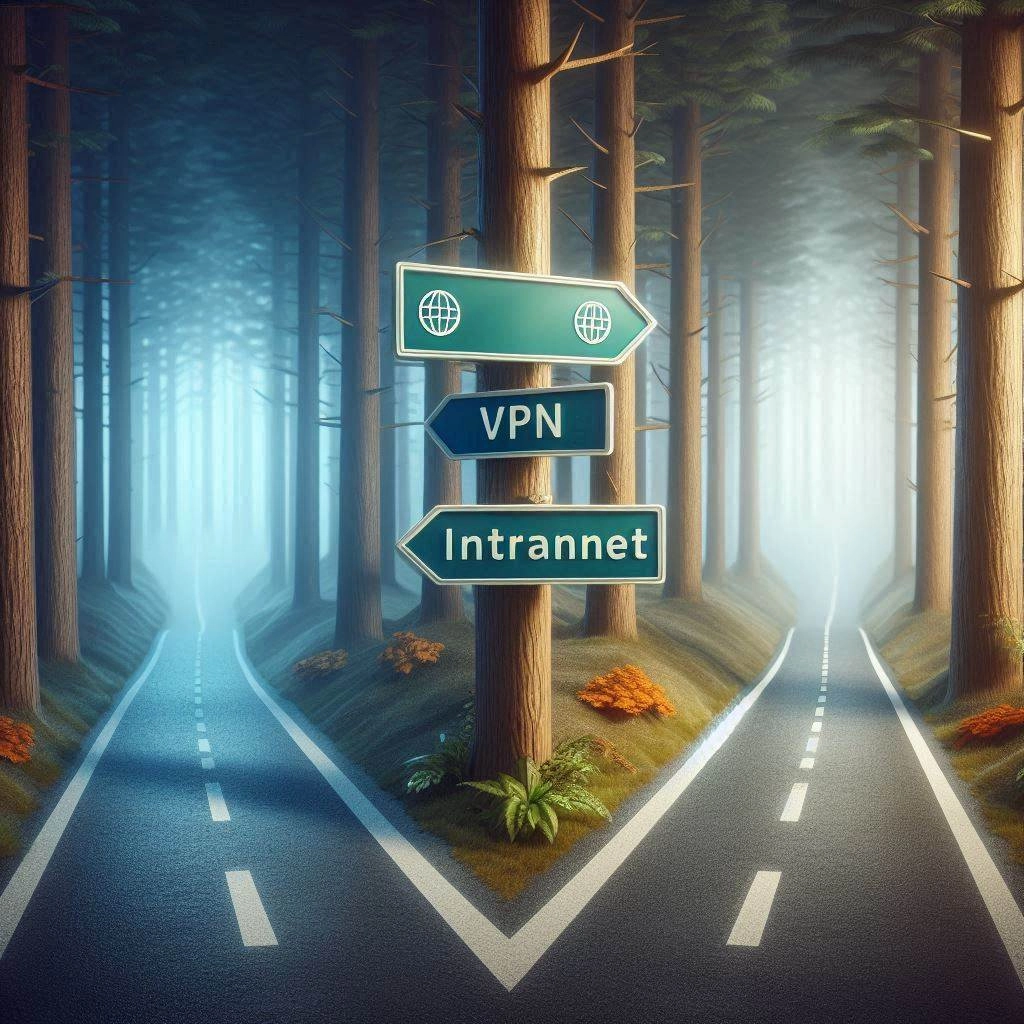VPN and intranet: same goal, different means

Intranet and VPN both are aimed at protecting data confidentiality and ensuring secure access for authorized users, but have some differences in their structure and operation. A VPN uses virtual circuits to create a secure connection over a public network, while an intranet is a private network limited to use within a specific organization or company.
What is an intranet and VPN: details
Intranet — it is a closed network accessible only to a certain group of people, such as members of an organization or employees of a company. Compared to using the Internet to find information, have fun, or communicate online, an intranet is intended for internal communication between people on the same intranet. Typically for teamwork on projects that require the exchange of confidential information and resources that only intranet participants have access to.
You can think of an intranet as a closed club or society where only members have access to information and can communicate with each other. As with the regular Internet, an intranet is accessed through special software or a web browser. To ensure the security of an organization's or company's confidential data, the intranet is protected using firewalls and authentication systems to ensure access only to authorized users.
Virtual private network helps create a “secret room” and ensure the security of our online activities. When using a VPN, your computer requests a connection to a server elsewhere in the world, which causes all of your Internet traffic to be routed through that server.
You can think of this process as creating a secret tunnel that is accessible only to you and your interlocutor. If someone tries to look inside this tunnel from the outside, they will only see incomprehensible and illegible data. Therefore, if it is important for you that your online activity remains unnoticed, a VPN becomes a necessary tool.
Characteristic differences between a VPN and an intranet
Both of these tools play an important role in ensuring secure data access and information sharing within an organization, but they have their own characteristics and features. Let's consider their main ones for a deeper understanding of their role in information security and data management:
- Borders. An intranet is limited to internal resources and access only to internal users, while a VPN allows users to remotely access internal resources from outside by providing a connection over public networks such as the Internet.
- Safety. When transmitting data through a VPN, encryption is used, ensuring access only to authorized users. The intranet provides access control and uses firewalls to protect the network.
- Management. Managed by VPN service provider. The intranet is managed by the organization's information technology department.
- Speed. The speed of VPN depends on the speed of the Internet. For an intranet, the organization's infrastructure and traffic volume are important. The speed of the intranet network does not depend on the Internet connection.
- Configuration. For VPN to work, client VPN software is required. Intranet requires network setup.
- Cost. VPN is usually paid for as a provider fee, without additional service costs. An intranet first requires network setup in the organization, and then there are maintenance costs.
Each of the presented network options has its own advantages and disadvantages, and the choice between them depends on the specific needs and requirements of the organization. Regardless of the option chosen, it is important to understand and take into account the features of each tool to ensure cyber security. the company's resilience.
Private VPN server: a functional element of any network structure
A private VPN server can be part of a virtual private network. In this case, it provides a secure connection for remote access to the organization's internal resources and information via the Internet. Users can connect to a private VPN server from anywhere with Internet access and access resources as if they were inside the organization's network.
A private VPN server can be part of an intranet if it is configured to provide access to internal resources and information of the organization only to authorized users. This is possible by using special settings and configurations of the VPN server, which limit access only to resources within the intranet.
The decision to buy a private VPN server on Private VPN server is reasonable and profitable. This website provides extensive information about available rental options, a variety of payment methods for VPN server services, as well as useful information about geographic server placement and other aspects. By analyzing all these factors, you can choose the optimal solution that best suits your needs.